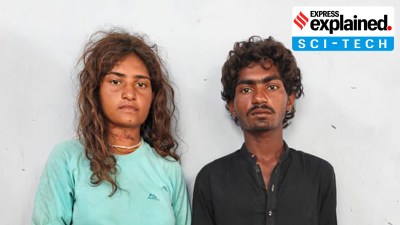Opp sniff victory as Govt fails to curb inflation
Nationwide protests against rising prices organised by Opposition could become major issue for voters ahead of LS elections.

The Opposition parties are organising nationwide protests against rising prices of basic foodstuffs, in the latest sign inflation could become the major issue for voters ahead of general elections.
Annual wholesale price inflation has jumped to its highest in more than three years at 7 percent, even after a flurry of duty cuts and export bans by the government, and was followed by announcements of protests from parties sniffing electoral blood.
India faces general elections anytime between October and May. The contest will pitch the ruling left-of-centre Congress-led coalition against the main pro-market Hindu nationalist opposition, the Bharatiya Janata Party (BJP).
The BJP has announced protests starting on Monday.
“Inflation is breaking records,” said Mukhtar Abbas Naqvi, BJP vice-president. “The inflation policies of the central government are weak on this. It will be a major electoral issue.”
The United National Progressive Alliance (UNPA), an alliance of regional parties hoping to be a “third force” in India, has also joined hands with the Communist Party of India for protests from April 16.
“The government is going to pay a high political price (for inflation),” said D Raja, a senior leader of the CPI.
Rising international commodities prices on speculation, surging demand in Asia, bad weather and biofuels have helped fuel inflation in India, already suffering from local supply bottlenecks from heavily regulated markets.
Those price rises have come just at the wrong time for Congress, mindful of 2004 when the BJP lost power in a backlash from millions of India’s poor who felt economic growth had not benefitted them. Now parties like the BJP seek revenge.
Food prices have a special status, making or breaking governments in a nation where millions spend most of their meagre wages on food. They are most vulnerable to price increases.
ONION OUTCRY
In 1998, the BJP lost state elections in Delhi, due mainly to runaway prices for onions, a staple of Indian meals. Onion prices also helped push out a left-of-centre Janata Party national government in 1980.
“Today, I wish to forewarn the Congress,” L K Advani, BJP leader, was quoted as saying by local media on Sunday.
“There are several reasons why people are angry with you. But as far as prices are concerned, they will make you pay a heavy price whenever elections are held.”
The ruling Congress has already been struggling. It performed poorly in recent state elections, in part due to rising prices.
The government has introduced a slew of populist measures, from a rural employment scheme to writing off billions of dollars in farmers’ debts, to revive its flagging political fortunes.
Just when Congress appeared to have taken the political initiative, rising prices have dealt it another body blow.
“We are all concerned … Whatever more can be done, will be done,” Prime Minister Manmohan Singh said on Sunday, referring to rising prices.
Last year, the government raised interest rates as inflation hit a two-year high. Inflation subsided but the rate hikes also hit growth, now forecast to fall to about 8 percent this year, compared to nearly 9 percent in the previous fiscal year.
Slowing the economy more to rein in prices may prove harder, economists say. The government can ill afford to further weaken industrial growth. This time its options may be more in line with price controls – something economists say may just lead to artificial inflation rates.
For some analysts, the government does have one advantage. Rising middle class incomes mean millions of India’s urban middle classes can absorb higher prices better than in the past, when inflation sparked food shortages and hunger.
“There is more of a cushion than in previous elections,” said political analyst Pran Chopra. “But if these prices are not checked it will become a major electoral issue.”


- 01
- 02
- 03
- 04
- 05





























